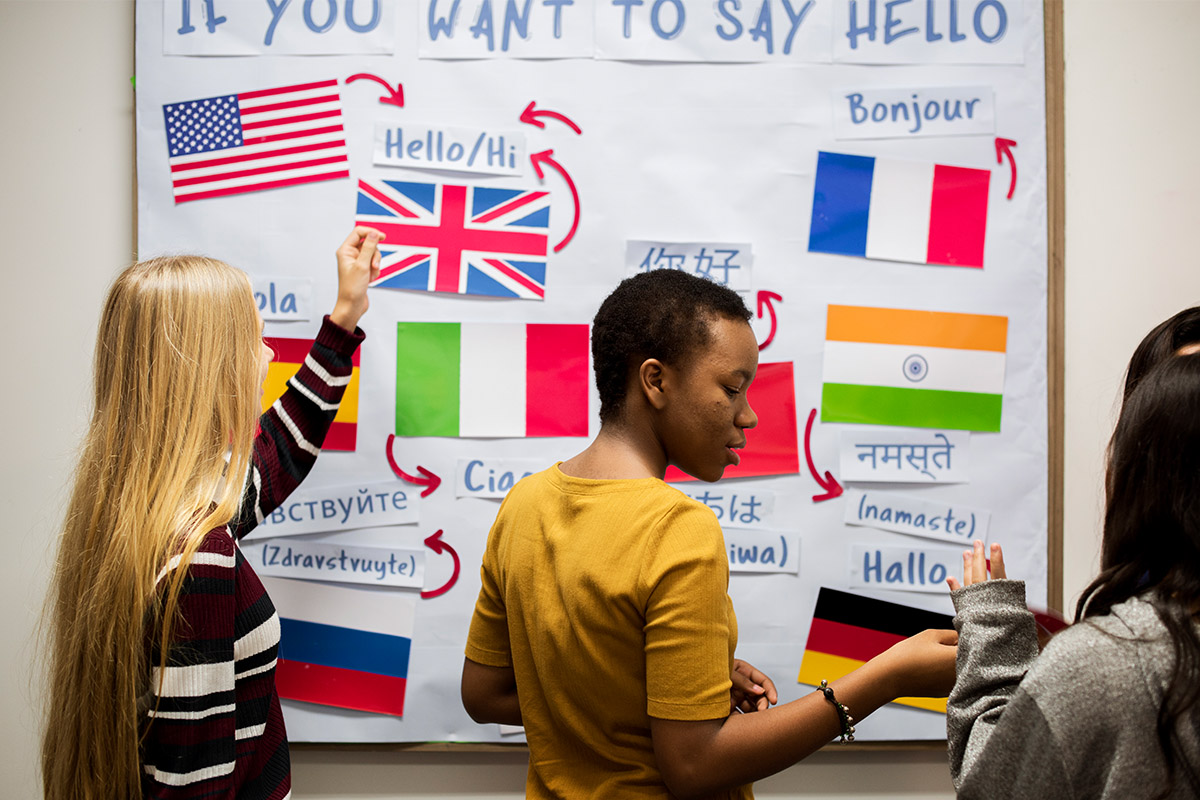- by admin
- in women letters
Why learn another language?

There are over 7,000 languages spoken across the globe and among these are the most commonly used around the world like English, French, Spanish, Chinese, Hindi and Arabic. All the languages spoken around the world have a particular history but have spread to different continents by people who are often referred to as bilingual or multilingual.
Bilinguals are able to communicate in two languages which may not be a mother tongue, but have been adopted from the environment they are living in, studied in school or due to the country’s language requirements. Multilinguals on the other hand are able to express themselves in several languages often with equal fluency.
According to Irene Namubiru, an artist who was recently been appointed Ambassador for the French language in Uganda, acquiring a new language like French has enabled her to make cross cutting world music and has also earned her a new job as ambassador.
“I will do my level best to take it to the next level since it is a language of tourism, business, and music, among others,” she says.
As our economy continues to become a global village, learning an extra language puts you at an advantage. Learning a new language is a personal choice and at times may come at a cost, but being able to communicate in another language may come in handy as we interact with people from different cultures.
Some of the reasons why you should consider learning a new language include:
Unlocks opportunities and career advantages
Being able to communicate in different languages can open a number of opportunities and unlock great platforms. Many people have got into places of power and sat on the world’s amazing boards because of the ability to express themselves in foreign languages. Global organizations like the United Nations consider languages like French and Spanish as an added advantage. Therefore, simply having working knowledge of another language, especially internationally recognised ones may be the only block preventing your next great opportunity in life.
Also, speaking another language can easily get one a scholarship to study in other countries which could save the expense of a university degree in Uganda.
Improves communication and access to information
Knowledge of a second language exposes you and gives a better understanding of different aspects, diverse subjects, news and opportunities. While learning a new language, you are able to improve your listening skills and pay more attention to the dynamics of the language. This may also spark a thought on how your native language works and a deeper understanding of it. You may even have more appreciation and reverence for the language.
Makes travel easier and more enjoyable
If your dream is to become a globetrotter, knowing another language should definitely be on your to do list. Traveling is fun and simpler when you can easily communicate with locals and most importantly know how to order food and ask for essentials like the café or toilet. Language barriers can be a daunting experience for a traveler as you will struggle to understand and communicate. This may end up affecting your whole travel experience negatively.
Gives you more social and global skills
The fallen hero Nelson Mandela said “If you talk to a man in a language he understands, that goes to his head. If you talk to him in his language that goes to his heart”. The ability to speak a foreign language will bring close to people of that culture and let you in into the history and background.
Learning a new language encourages open mindedness and allows you to be positive towards the language and culture of others. Failure to communicate in another language may give you a bias towards other people and cultures making social interaction difficult. However, an extra language can earn you favour in certain circles and open your mind to new possibilities and skills while bringing excitement to your life and motivating you to be a better human being.
Makes you smarter
According to Alliance Française Kampala, knowing more than one language is associated with better problem-solving skills, creativity and better reasoning. A different language sparks quick reasoning and better handling of analytical tasks. Research also shows that people whose brain is consistently active are likely to delay dementia.
Earns you a global citizen status
Multilingualism is arguably vital in a changing world. Being able to connect and engage with different people from different continents in such an interconnected world can contribute to helping solve global problems like climate change and poverty.


















